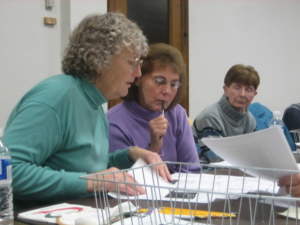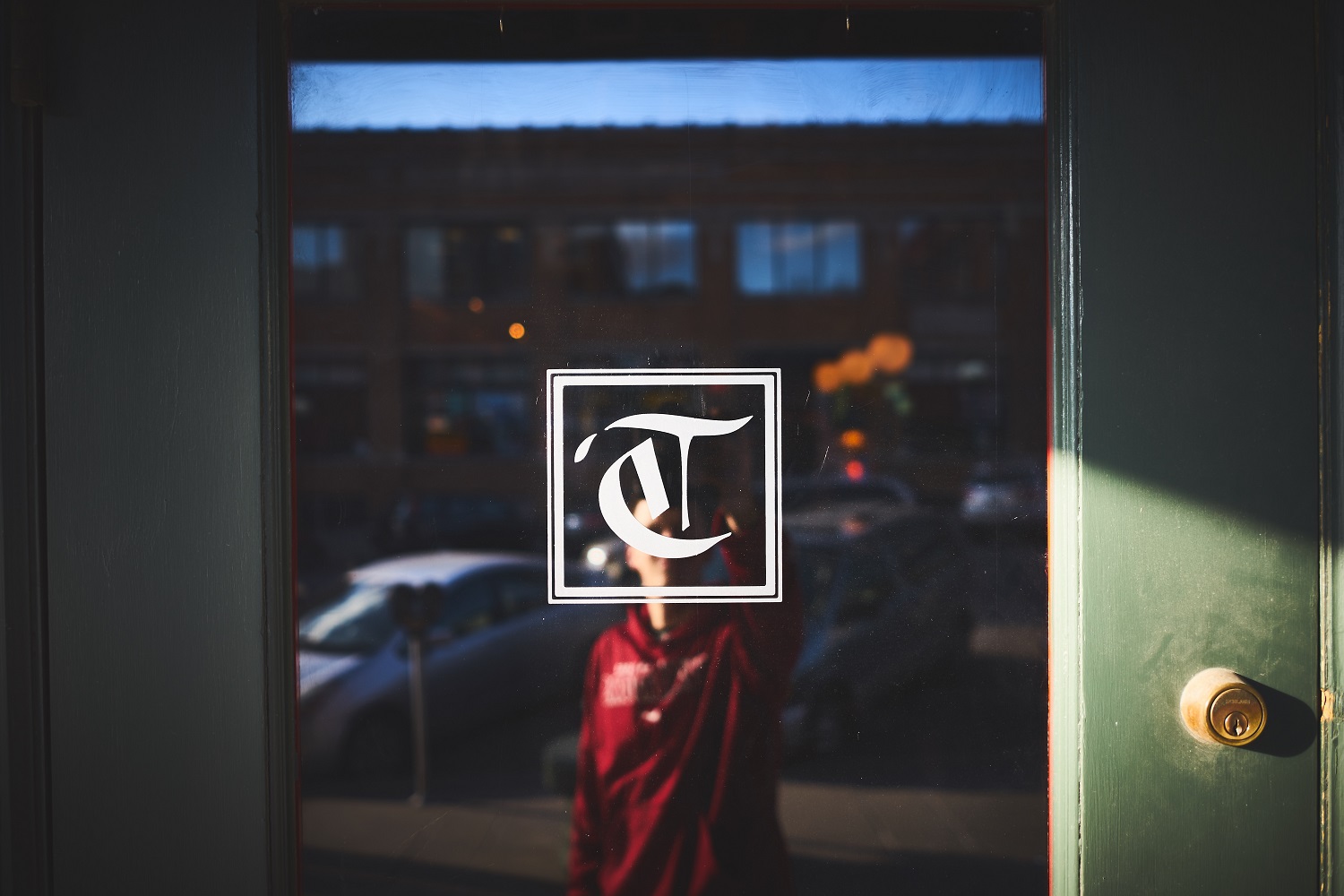Millions of Americans ‘Disappeared’ — Thanks to U.S. Media
[NB: check the byline, thanks. /~Rayne]
In her post about Saturday’s “Hands Off” protest rallies, Marcy noted the “increasingly constrained media” — coverage by U.S. news media which doesn’t reflect facts on the ground of importance to the public.
This has been a problem since at least the buildup to the Iraq War, when massive anti-war protests took place and little coverage emerged in mainstream media, or Occupy Wall Street’s prolonged resistance with little reporting documenting its activities.
Much of this can be blamed on the corporate-owned nature of most U.S. news media, combined with the rolling change in business model over the last 30 years since the internet became a common household feature.
But some of the blame also lies with the movements and organizations that continue to act as if this is the 1970s instead of 2025.
Let’s look at how the largest print news media outlets covered the protests.
First, the largest print outlets by circulation as listed by Press Gazette as of March 6, 2025:
I’ve taken screenshots of the print edition first page where available from these ten newspapers, via Newseum.org.
~ 1 ~
The Wall Street Journal — doesn’t have a Sunday edition. Tomorrow’s edition will likely be the most read of the week, and many leaders of U.S. industry will do so tomorrow. Will it cover the “Hands Off” protest rallies at all? Or will it try to keep the business class in the dark while serving up tariff news.
~ 2 ~
The New York Times:

The rally did make the front page though it’s below the fold and confined to a photo and blurb, the story itself on A18. This is an utter embarrassment — a massive gathering in its own backyard and this is all the attention it gets.
At least the story was syndicated and featured elsewhere in US newspapers, just not in the paper of record where one of the largest rallies took place.
~ 3 ~
Next, the New York Post.
It’s as if nothing happened in New York City at all. What a useless POS. This is the Late City Final edition, too, making it even more obvious the Murdochs don’t want to acknowledge the rally.
~ 4 ~
The Washington Post is smaller in terms of print circulation than the Murdochs’ NYPOS. Who would have thought that would ever happen? But this is probably a key reason why:
That pathetic little photo and blurb is all a nationwide protest rally garnered lest Bezos and his weak sauce managing editor piss off his orange overlord. No freaking wonder the number of people willing to buy a print edition has dropped below a NYC tabloid.
Relatedly, Pulitzer Prize-winning columnist Eugene Robinson resigned from WaPo — one less reason to read.
~ 5 ~
On to USA Today, a paper built to be a national outlet: there is no print edition on either Saturday or Sunday.
I will note that the outlet’s digital edition allows readers to tweak the content they see; while Saturday’s rallies didn’t appear in the top segment, there are two choices related to the rallies from which readers can choose.
One might wonder if the selections help shape editors’ future coverage choices.
~ 6 ~
The sixth largest print newspaper, the Los Angeles Times, is even worse than the Washington Post as far as coverage of the rallies is concerned.
You almost need a microscope to find a reference to coverage on the first page; Nazi-friendly Kanye West garners at least eight times the page space. No wonder LAT continues to bleed subscribers.
~ 7 ~
Minnesota is home to a bright star among the nation’s top print outlets: the Star-Tribune gave the rallies the top spot.
Finally, the seventh largest print paper deep in the heartland recognized a nationwide protest by millions of Americans against an 11-week-old administration.
~ 8 ~
The eighth largest paper, Newsday, is a local tabloid covering Long Island, NY, and nearby NYC. Apparently nothing of note happened in NYC on Saturday as far as Newsday is concerned, though editors managed to choke out two words, “nationwide rallies” in the lower left column. I didn’t highlight them — see how long it takes for you to find them.
~ 9 ~
Honolulu Star Advertiser is the ninth largest print edition, a paper with more challenging physical distribution than the rest above as it is the largest in Hawaiian islands. Unfortunately I couldn’t locate a copy of the print edition for Sunday. Here’s its digital entry covering the protests which began five hours earlier in Eastern Time Zone:
Not great considering the lead time it had to cover the events. However the right-hand column identifying subscribers’ favorites tells us protest coverage was important to readers in spite of the less-than-stellar placement on the digital front page.
~ 10 ~
The Seattle Times is no stranger to covering protest rallies:
Above the fold, large amount of text on the front page, and a great photo conveying both the crowd’s energy and a localizing landmark in the background. Thumbs up.
~ Other ~
I should note the two major wire services’ coverage, beginning with the nonprofit Associated Press:
No story on digital front page but a good slice assigned to a collection of rally photos. An article on the rallies is the second most read article as I type this.
Reuters’ articles about the protests weren’t high on its digital page but they did occupy the slot for news about the United States and included a story about the related protests in Europe.
Online news media may have done a better job than print media did; the “Hands Off” protests occupied the top slot in Google News on Sunday based on this screenshot taken about 2:00 pm ET:
One interesting detail: note the time of each story’s publication. NYTimes’ piece was roughly 10 hours later than the others featured here. Why?
~ ~ ~
All of the above is a very lengthy way of saying the US media is still disappearing millions of Americans by editorial fiat. These same outlets which failed to dedicated adequate space to national and international protests against the Trump administration less than three months after inauguration day are missing a critically important story.
Worse, they may also be missing the stories that drove protesters to the streets. The signs tell observers Americans are pissed off about an unelected oligarch rifling through their Social Security; they feel betrayed by a president undermining the rule of law and national security, so intent on enacting authoritarian rule.
And they haven’t yet begun to feel the economic pain from tariffs though they are angry already about the deep damage to their retirement portfolios. When tariffs begin to eat at their household expenses, these kinds of protests are only going to swell.
Americans can’t count on corporate-owned media to do the right thing when they are already failing. A different approach to communication will be necessary to convey solidarity with other Americans while telling the Trump administration and state governments aligned with Trump that Trumpism isn’t working and the public demands better.
I can think of a specific example here in Michigan that feels like a bellwether, an indicator the national media isn’t getting this moment right by a long chalk.
Benzonia, a tiny town in Benzie County, located in northwestern lower Michigan, had a “Hands Off” protest rally. There were an estimated 350 participants. What’s unusual is that Benzie County is very red; it’s only voted for Democratic presidential candidates three out of the last ten presidential elections, and only four times since 1884. The county has only ~15,000 residents. Benzonia is also located 33 miles from Traverse City, where an estimated 4,000 people participated in a rally. Benzonia rally participants chose to protest in very small municipality in a lightly populated red county; their numbers represented roughly 3% of persons who cast a vote in that county in 2024. The number of participants may have been more since media typically underrepresent participants; another local observer estimated 500 attendees.
This isn’t the only such example; there are many more like it given over 1000 protest rallies across the country. At least a local media outlet from a small blue city covered Benzonia’s rally; how many frustrated red towns weren’t afforded that?
More local organizing is necessary to help Americans exercise their First Amendment rights to free speech and free association, to express their frustration with the Trump administration’s repeated failures to ensure laws are faithfully executed.
But that organizing needs to address the repeated failures of a corporate-owned media environment as well, finding ways to make it difficult for media to avoid coverage, and developing alternatives to corporate-owned media to ensure coverage happens anyhow.
Share in comments below how your local media covered the “Hands Off” rallies.
_______
Image used with this story is from the 2017 Women’s March.

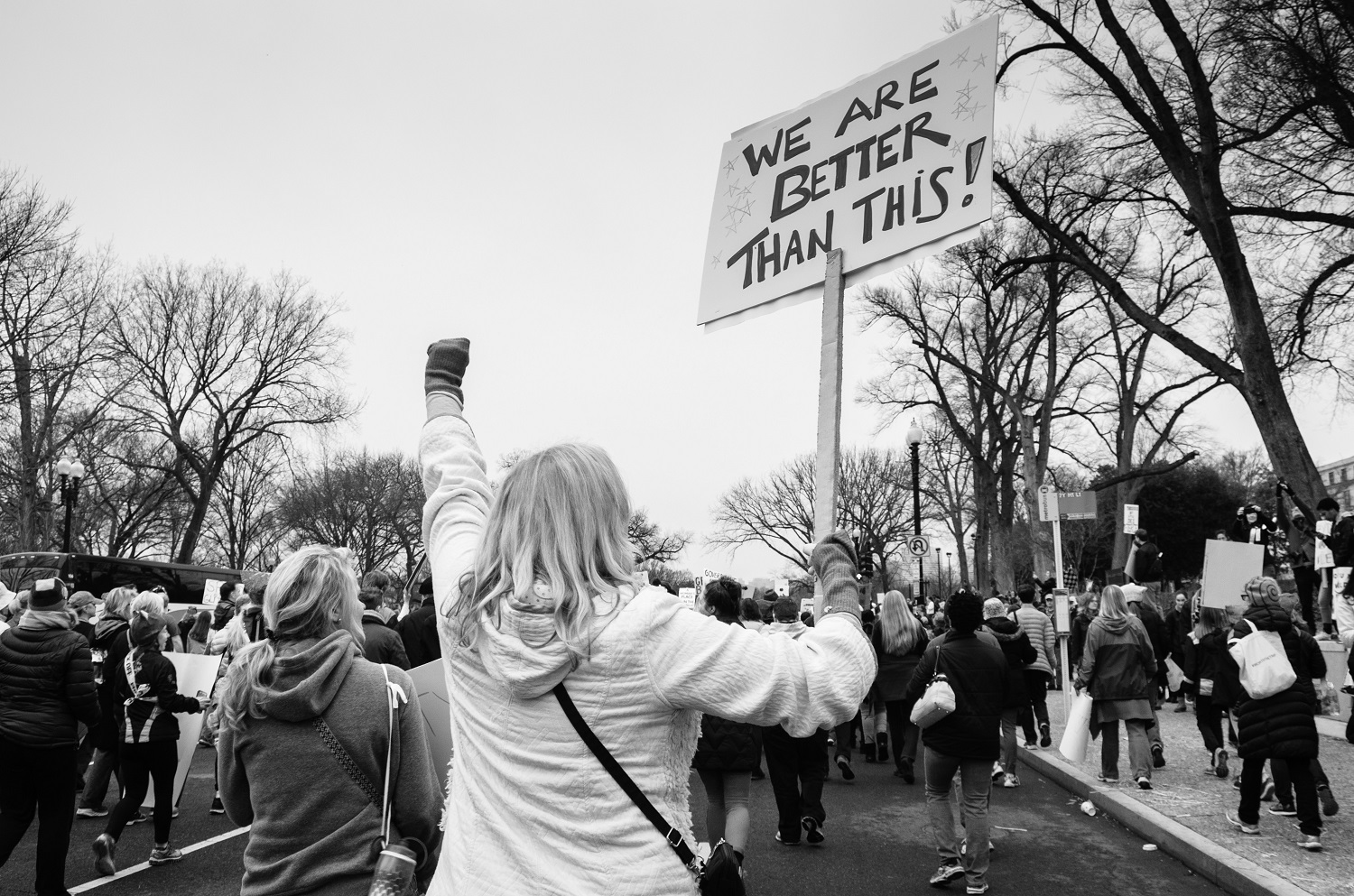
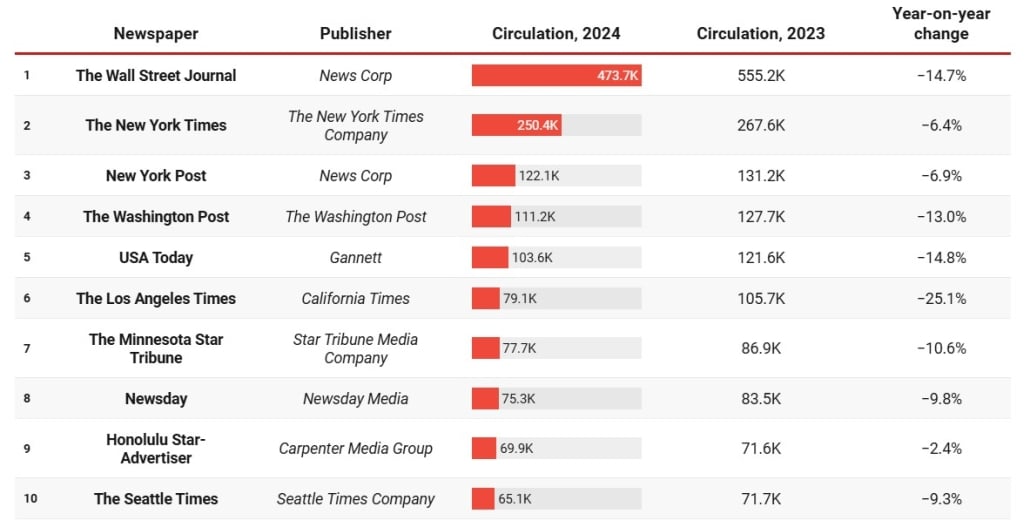
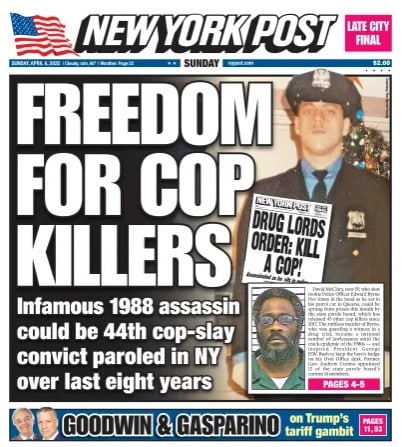

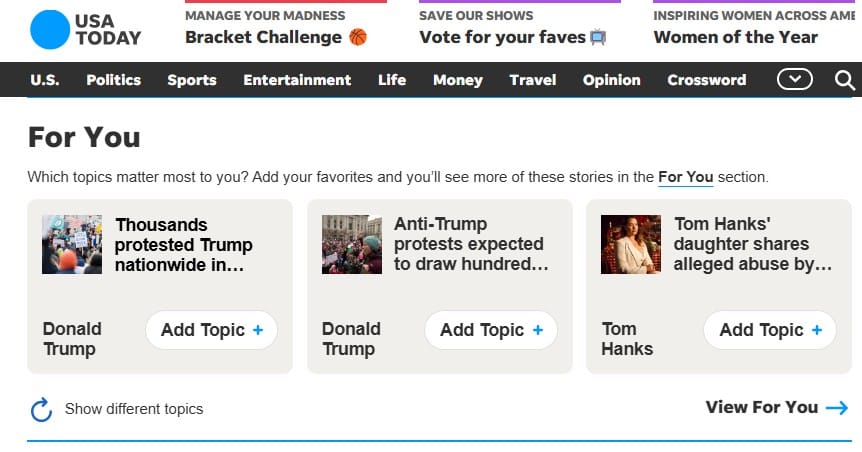
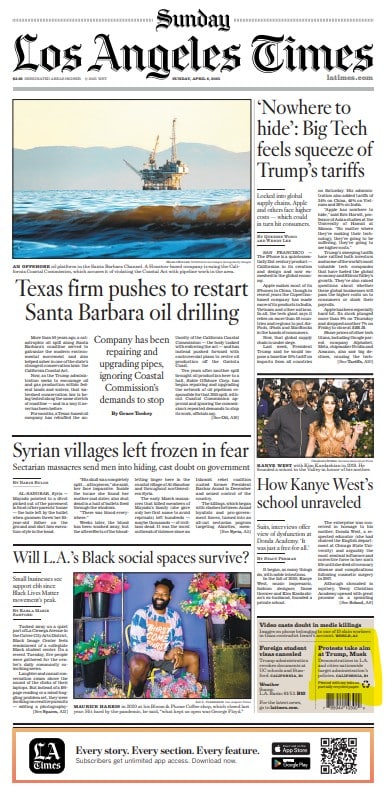
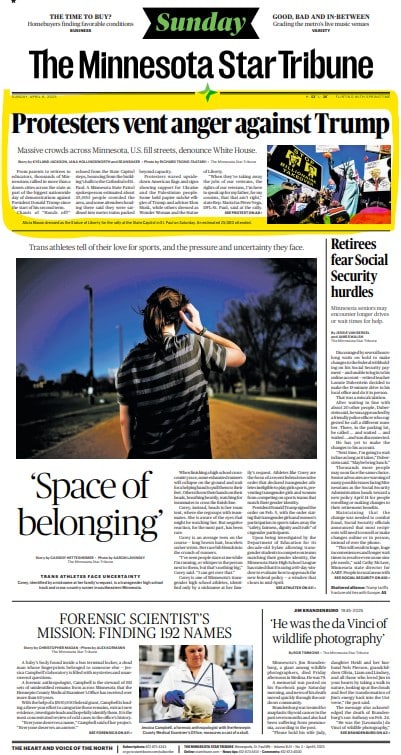
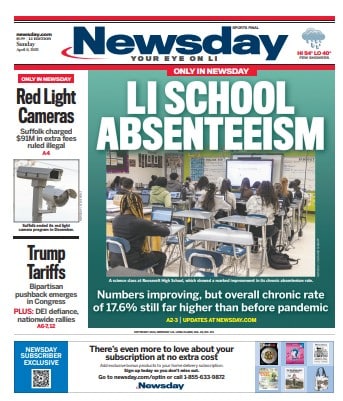

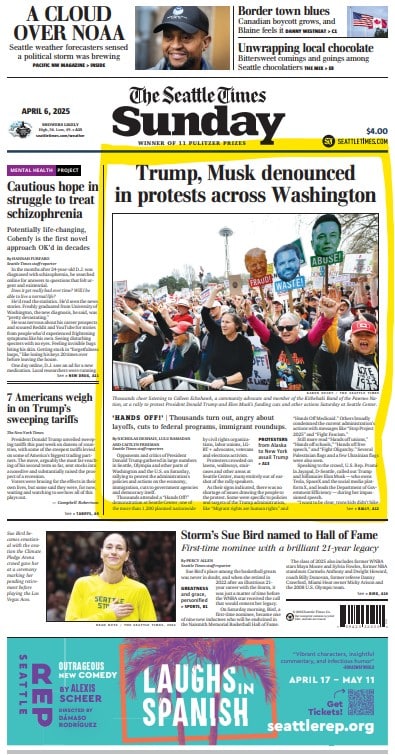
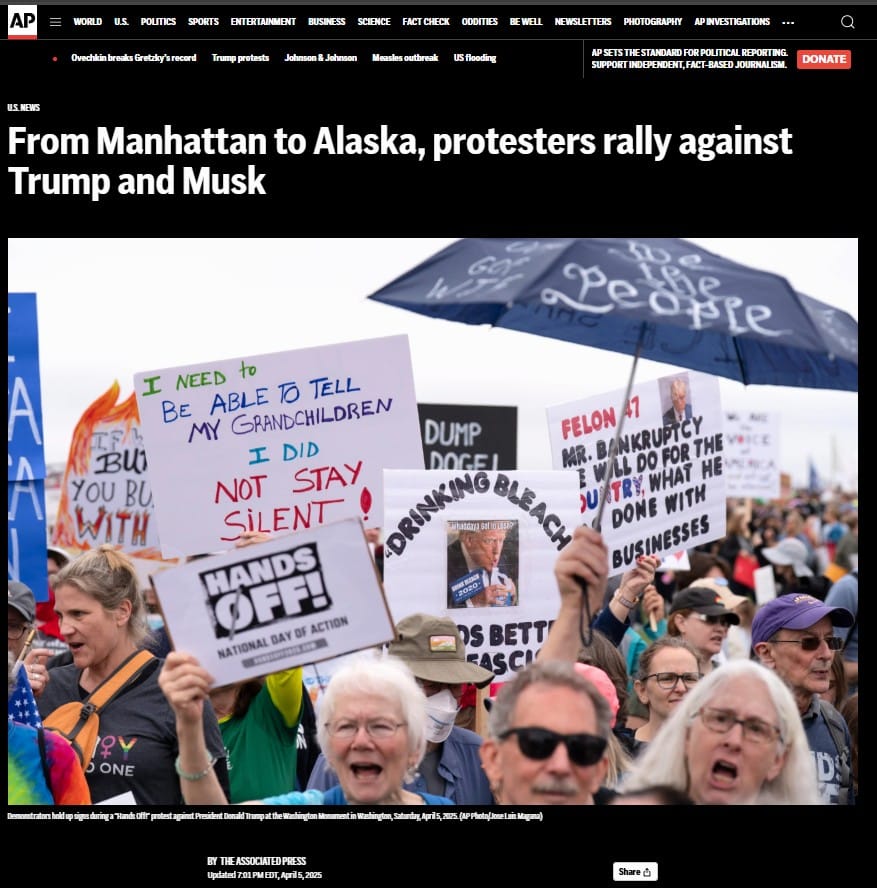




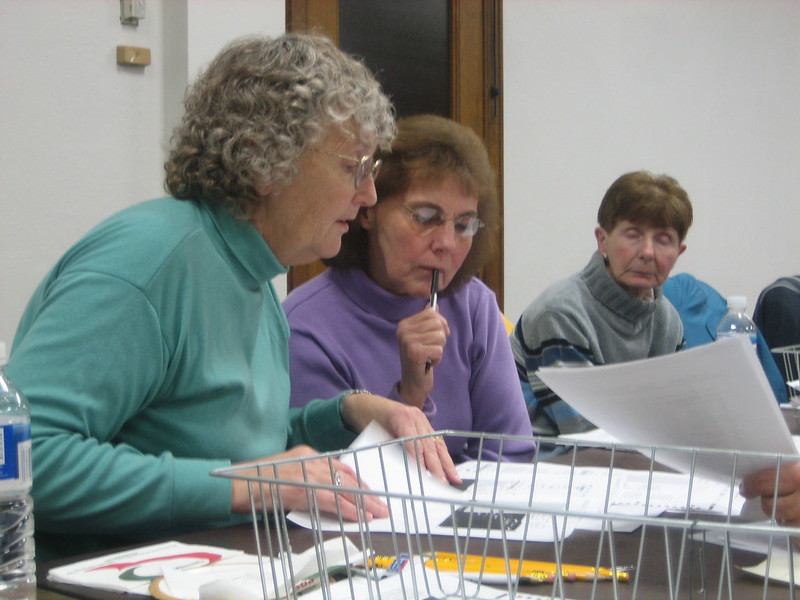 Attribution-ShareAlike 2.0 Generic (CC BY-SA 2.0)
Attribution-ShareAlike 2.0 Generic (CC BY-SA 2.0) 